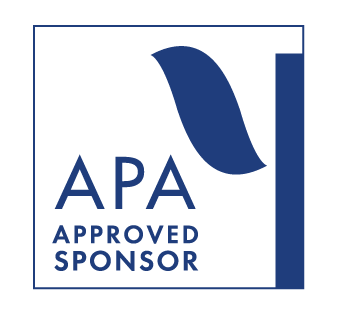Impacts of Substance Use on Adolescent Brain and Behavioral Development
- Topic Areas:
- Children & Adolescents | Substance Use & Addiction | Brain Development
- Categories:
- Pre-Recorded Homestudy
- Speaker:
- Monica Luciana, Ph.D.
- Course Levels:
- Intermediate
- Duration:
- 1.0 Hour
- License:
- Never Expires.
Producer: Minnesota Psychological Association
Description
Note: If you attended this session live (June 2021) and received credit, you cannot attend the on demand session for additional credit.
The adolescent brain is in an active state of change as neural circuitry is refined in anticipation of adulthood. A developing brain may be more vulnerable such that environmental experiences, if sufficiently intense, can alter maturational trajectories. One such experience is substance use. As indicated by a number of recent meta-analyses, executive control processes, which include working memory, cognitive flexibility and numerous aspects of attentional, behavioral and emotional control, are impaired in the context of active substance use disorder. Neural circuitry is also impacted. Many of these recent studies focus on outcomes associated with clinically-significant levels of alcohol and/or cannabis use. But whether these impairments consistently emerge as a consequence of sub-clinical levels of use, or use that begins at early ages, is debated. This talk will review recent findings, including those recently gleaned from large-scale longitudinal studies such as the Adolescent Brain Cognitive Development (ABCD) study, to address these questions. Findings will be discussed in relation to adolescence as a sensitive period of neurodevelopment.
Intermediate: Assumes post-doctoral education status and general familiarity with topic.
Objectives:
1. Describe mechanisms of neurodevelopment in typically developing adolescents.
2. Apply knowledge of these mechanisms to alterations observed in the context of substance misuse, with an emphasis on the impacts of alcohol and cannabis.
3. Compare what is known about substance-related impacts in adolescents at the neural versus behavioral level.
4. Explain limitations in the literature with respect to whether adolescence can be viewed as a sensitive period for substanceuse-related pathology.
5. Explain current findings regarding adolescence as a sensitive period for substance-use-related neurotoxicity.
Credits
Courses sponsored by the Vermont Psychological Association are pre-approved for continuing education for psychologists by the Vermont Board of Psychological Examiners. This course qualifies for 1 continuing education credits.
Continuing education courses sponsored by the Vermont Psychological Association are pre-approved by the Vermont Office of Professional Regulation for continuing education credit for licensed independent clinical social workers in Vermont. This course provides 1 CE credits for Vermont licensing.
This course has been approved for continuing education credit by the Vermont Board of Allied Mental Health and earns 1 continuing education credits.

The New Hampshire Psychological Association is approved by the American Psychological Association to sponsor continuing education for psychologists. The New Hampshire Psychological Association maintains responsibility for this course and its content.
Completion of this course earns 1 continuing education credits. Psychologists licensed in states which approve courses sponsored by APA-approved sponsors may earn homestudy continuing education credit for taking this course.
The Vermont Psychological Association is approved by the American Psychological Association to offer continuing education for psychologists. These credits are also accepted by the New Hampshire Board of Mental Health Practice for clinical social workers licensed in New Hampshire, as provided in Mhp 402.02(b)(1). The course qualifies for 1 continuing education credits.
The Vermont Psychological Association is approved by the American Psychological Association to offer continuing education for psychologists. These credits are also accepted by the New Hampshire Board of Mental Health Practice for clinical mental health counselors licensed in New Hampshire, as provided in Mhp 402.02(b)(1). The course qualifies for mandated credit types as follows:
Ethics:
Suicide Prevention:
The Vermont Psychological Association is approved to offer continuing education to licensed clinical social workers by the Vermont Office of Professional Regulation, and is approved by the American Psychological Association to offer continuing education to psychologists. This course thus qualifies for 1.2 continuing education credits for Massachusetts licensed clinical social workers in Massachusetts under 258 C.M.R. §§ 31.04(2)(d), 31.04(5).
The Vermont Psychological Association is approved to offer continuing education to licensed clinical social workers by the Vermont Office of Professional Regulation, and is approved by the American Psychological Association to offer continuing education to psychologists. This course thus qualifies for 1.2 continuing education credits for Massachusetts licensed certified social workers in Massachusetts under 258 C.M.R. §§ 31.04(2)(d), 31.04(5).
The Vermont Psychological Association is approved by the American Psychological Association as a continuing education sponsor for psychologists. Continuing education credit in the amount of 1 credits earned in this course may be accepted by the Connecticut Department of Public Health for licensed clinical social workers under Conn. Agencies Regs. § 20-195o(c)-3.
This course is pre-approved for credit for Connecticut licensed professional counselors under Conn. Agencies Regs § 20-195cc-3(a)(1). This course qualifies for 1 continuing education credits.
Handouts
| Handout (3.7 MB) | Available after Purchase | ||
Speaker
Monica Luciana, Ph.D. Related Seminars and Products
Monica Luciana, Ph.D., is a Distinguished McKnight University Professor at the University of Minnesota in the Department of Psychology and a founding member of the UMN Center for Neurobehavioral Development and received her Ph.D. in Clinical Psychology from the University Minnesota. She conducts longitudinal studies of brain and behavioral development in adolescents using personality measures, cognitive tests, and brain imaging techniques. Funded by the National Institute on Drug Abuse, she co-directs the Twin Hub of the NIH-funded ABCD Consortium as well as the consortium’s workgroup on neurocognition.
The speaker has indicated no conflicts of interest.



